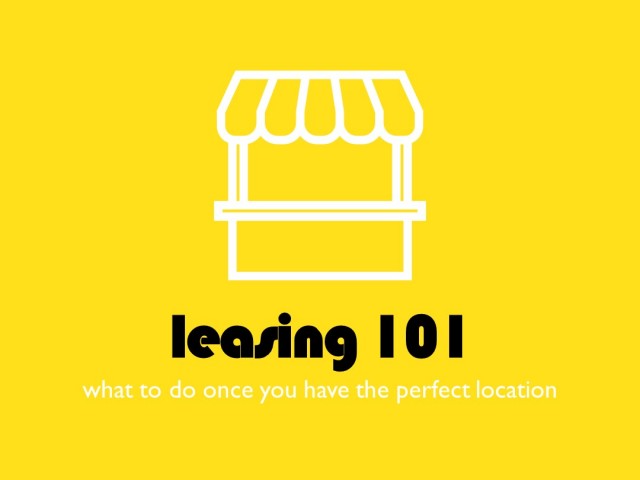Leasing 101: What to do once you have the perfect location
Aug 5, 2020, 7:11 AM
The ongoing Coronavirus Crisis is sure to generate some flux in the commercial leasing market. Perhaps your thinking of capitalizing by moving to a new location or starting-up a business.
Even if commercial vacancies rise and rents fall, don’t be fooled by leasing agents' speak of a ‘renter’s market’. As a renter, you’re always beholden to the strict demands of the Landlord. The key is to be savvy in the initial stages and get your lease foundations right - here’s how.
1. Initial viewing
Once you have found the perfect location for your food business (and budget), it’s time to have a look.
Before you arrive, check the fit-out requirements for a food business (you will also need this for your budget) and write down a list of questions you have for the Agent/Landlord. Also, arrange to take a friend with you to view the premises to gain another perspective.
When you arrive at the property, check the essentials – e.g. power: 3-phase? grease trap, gas, hot water, coving, hand wash – compare this with the fit-out requirements since the less you need to add yourself the cheaper the fit-out. Take lots of photos. Ask the Agent/Landlord for the rental cost and outgoing schedule, check the permitted use, and enquire about the security deposit or bank guarantee amount as this needs to be factored into your budget.
2. Background check
Happy with the initial viewing? Time for a background check by reaching out to the previous tenant. It’s best to talk on the phone or meet in person as you can gain a better understanding of their true feelings.
Ask what the Agent/Landlord was like to deal with? If the business was previously a food business, ask why they left? What type of food business was it? Approximately how many customers did they serve per day? What were peak periods of trade? Who is the main competitor? What rent did they pay? Also, speak with other businesses in the area, they may share the same Agent/Landlord.
3. Negotiation
If the premises ‘ticks all the boxes’, then submit an offer. For a start-up food business, you want to keep your lease term short (e.g. 12 months plus an option).
When deciding on the term you will need to consider the risk (i.e. you don’t really know how your new business will perform), and the need for a return on your investment (e.g. fit-out, etc.). A detailed cash flow forecast will help you determine the required return.
Request a rent-free period for the fit-out. Ask for a contribution to fit-out costs but beware of any conditions attached. Ask about any restrictions on fit-out and trading, and make good conditions. Check the annual rent review conditions, usually these are set as a fixed rate plus CPI or market review. Request a fix rate as it gives you certainty (Tip: avoid market review!). Finally, always have a solicitor look over the agreement and negotiate on your behalf.
Deciding on a commercial property for your new or existing business can be exciting but it’s essential to keep a level head. A commercial lease is one of your most important business commitments, take the time to get the foundations right.

